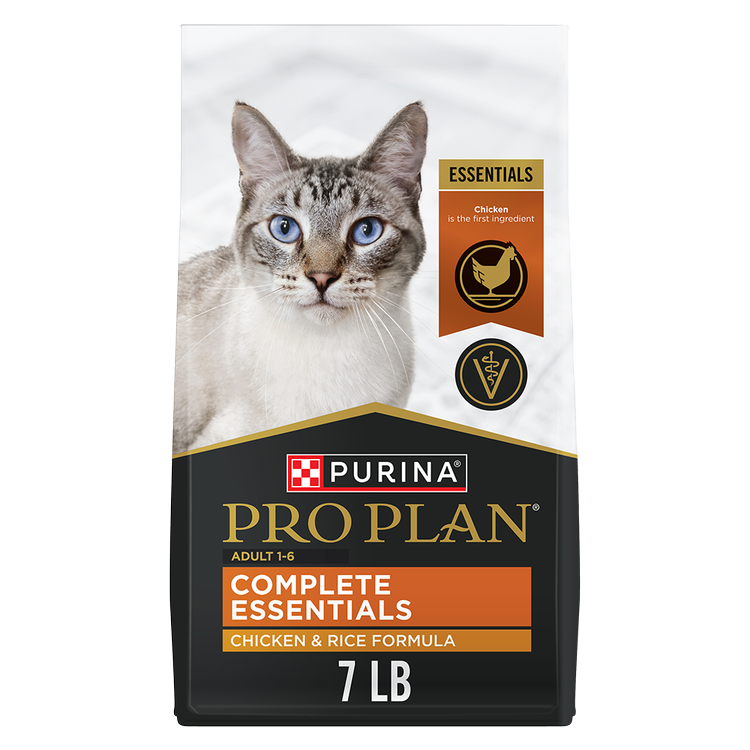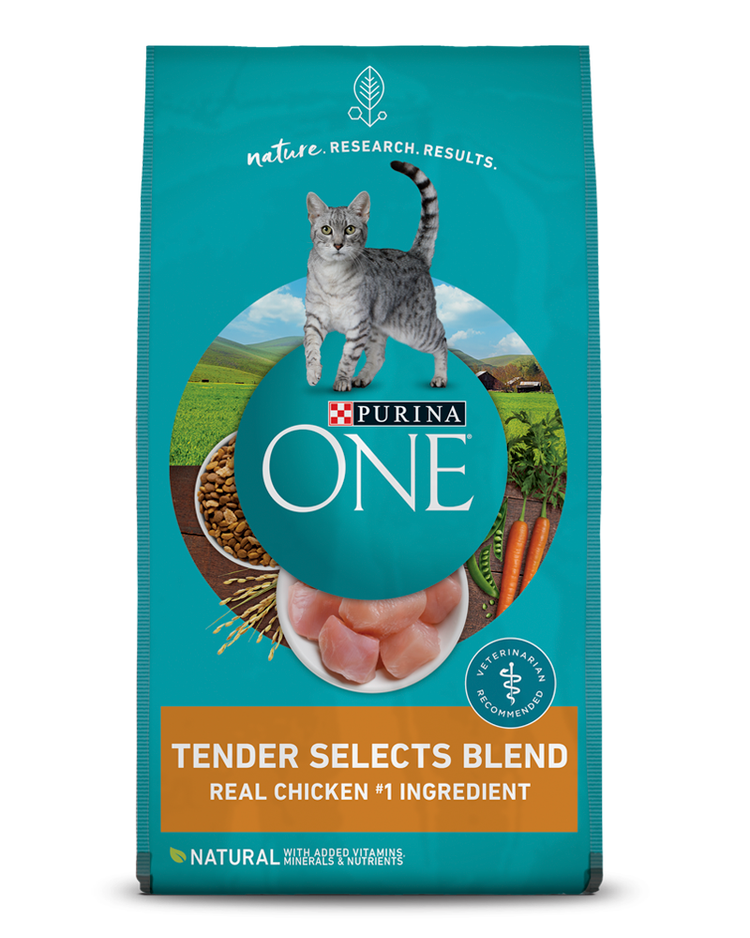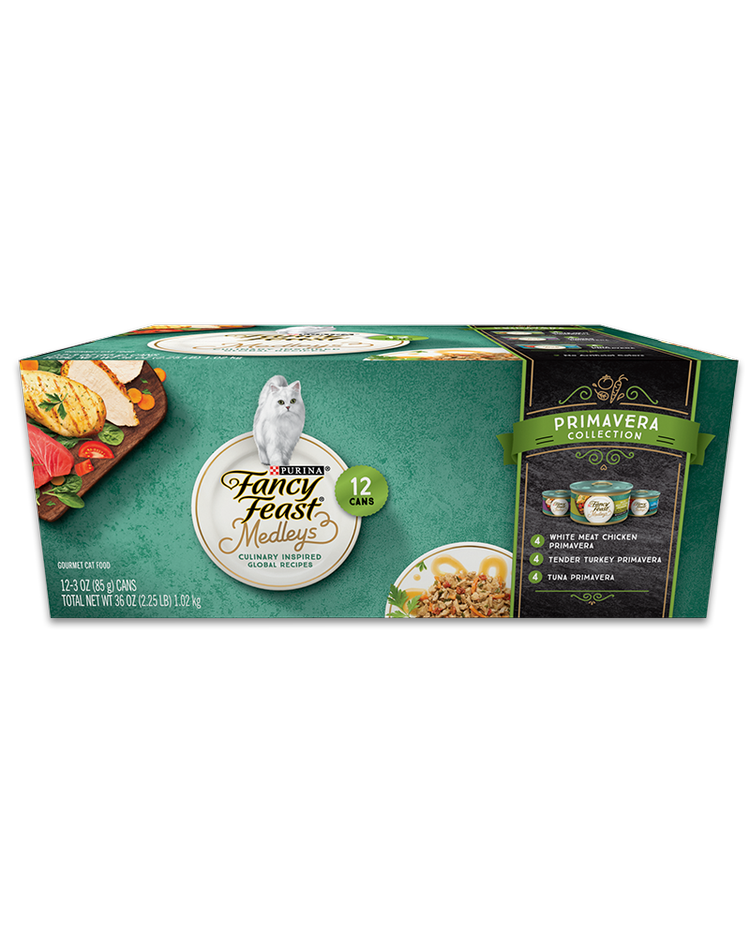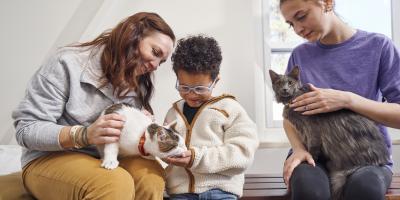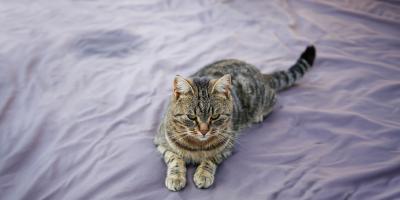How to Cat Proof Your Christmas Tree


It’s that time of year again! When we bring the Christmas tree out, brew the hot cocoa, decorate the home for the season, and watch our cat as they decide to climb up our brand-new tree. It’s true that sharing this holiday with our furball can be one of the most joyous experiences, even if they think our Christmas tree is their new cat tree. We love seeing how excited they get when they receive a new Christmas gift or how much fun they have swatting around the Christmas décor. However, as merry as these festivities can be, we must also watch out for some of their mischievous ways that could harm them, such as sneaking off with holiday goodies which are toxic to them or collapsing the Christmas tree that they just climbed when we weren’t looking. That is why it’s so important to ensure we are taking the best safety precautions for our loved ones to keep the Christmas spirit going throughout the whole season.
Are Real Christmas Trees Safe for Cats?
Unfortunately, no. Cats cannot eat any part of the Christmas tree, including the pine needles on many fir trees. Other holiday plants are also toxic to cats and produce oils which can cause irritation to a cat’s mouth and stomach. This includes the Christmas tree water. These items can cause vomiting, diarrhea, excessive drooling, and more. In addition, if the sharp pine needles get ingested, there is a risk that it can cause internal damage, such as puncturing the lining or bunching together and causing an intestinal obstruction. Thankfully, it is rare for a cat to eat enough of the tree to cause anything outside of some GI issues to occur. If your kitty is eating needles, consider putting up a Christmas tree barrier so your cat cannot access the tree.
Regardless of whether you opt for a real tree or a faux fir, your curious kitty might still try to climb your Christmas tree, which can tip the tree over and cause an accident to occur. It’s best to make certain that whichever tree you get is weighed down securely.
On top of the tree, the items on and around it can become a potential hazard. This includes the following:
- Tinsel, garlands, and angel hair, which can get ingested and cause intestinal blockages and GI issues.
- Low hanging glass ornaments that can get knocked off and shattered causing danger for humans and pets. A lot of people place their Christmas decorations up high on the tree to lessen the temptations for their cats.
- Cords from Christmas tree lights that a cat might mistake as a new string toy, potentially resulting in an electrical shock.
- Candy tree decorations, which contain xylitol, a sugar substitute that is very toxic to pets and can even be fatal.
- Presents under the tree that your cat might be tempted to eat and tear apart, leading to various health concerns depending on what they ingested.
- Other tree decorations that a cat might think is a new play toy, resulting in GI and other concerns.
- Many different plant foods and fertilizers for potted trees and plants which are toxic to cats and can leak into watering trays that a cat might try to drink from.
- Pots with soil that might get used as a litter box.
Cat proofing your Christmas tree becomes an important and necessary step during the holidays to ensure that none of the above comes to fruition.
How to Cat Proof Your Christmas Tree
You might be wondering, How do I keep my cat away from the Christmas tree? The last thing we want is for our beloved kitty to knock the tree over or consume something on the tree which can make them ill. Luckily, there are plenty of great ways to cat proof your Christmas tree, allowing everyone to enjoy the holidays with a peace of mind. Here are some examples on how you can keep your cat and tree safe during the holidays:
- Set up a pet gate around your Christmas tree or place it in a room behind a closed door where your cat cannot access it unsupervised.
- Try opting for a faux fir tree, which is a safer Christmas tree option. You won’t have to worry as much about those pesky pine needles being eaten, ingested, or getting between your buddy’s paws.
- If you use a real tree that needs watering, then make sure to cover the tree stand so that your cat won’t drink the water. Not only can the water be toxic to cats, but it can also contain harmful bacteria and other pathogens that are not safe to ingest.
- Another way to deter a cat from the tree and tree water is by placing orange or lemon peels on waterproof dishes below the tree skirt. Many cats don’t like the smell of these fruits.
- Try moving all furniture away from the tree, so that your cat can't use a nearby table, couch, bookshelf, or something else to launch themselves into the tree.
- Install pet-safe cord protectors around any electrical items, like Christmas lights, and place these items out of reach from your cat if possible.
- Place fragile ornaments and Christmas tree décor towards the top of your tree and away from your cat. Make sure these items are secured tightly so they don’t fall.
- Use plastic or plush ornaments that are shatterproof and cannot hurt your pet.
- Use zip ties, floral wire, or plastic hooks to affix any ornaments, electrical cords, and/or other holiday décor.
- Decorate your tree with as many cat-safe alternatives as possible, such as non-breakable ornaments.
- Keep anything edible and potentially toxic away from your loved one. It’s probably best to keep these items safely stored away until it’s time to take them out for the holidays.
- Don’t place any presents out under the tree until you are ready to open them, in case your kitty decides to help themselves to a present or two.
- Avoid tinsel, garland, and angel hair on a Christmas tree. Perhaps decorate with Christmas cards or paper garland instead.
- Use a weighted base or attach weights to a tree base to hold your Christmas tree in place, so it cannot get tipped over easily.
- You can even try to train your cat to leave the Christmas tree alone. Make sure to never punish your cat for messing up your decorations.
The more precautions you take, the better the Christmas experience will be for everyone and the less you will have to worry about.
Other Cat Christmas Hazards
If Christmas trees weren’t enough to worry about, there are other holiday hazards that must be watched out for around your pets:
- Candles. Unattended candles could accidentally get knocked over by your loved one, creating a serious fire hazard and potentially burning your cat as well. If you choose to do candles for the holidays, either ensure that they are out of reach from your buddy or try using LED candles instead. There are even pet-safe candles that use healthier materials if you prefer real candles to fake ones. These candles will still need to be monitored and placed out of reach as well, so no accidents occur.
- Snow globes. As beautiful as these decorations are, snow globes contain ethylene glycol (antifreeze) inside. If your cat knocks these off and they get broken, the glass can hurt your kitty and the liquid is highly toxic, so always keep snow globes well out of reach.
- Firestarter logs. Cats might think these are play toys, however, Firestarter logs contain sawdust and paraffin which aren’t healthy for our pets. If these get ingested, they could cause GI issues or intestinal blockages. It’s best to keep these in a safe location where your kitty can’t access them.
- Other holiday plants and festive flowers. There are several seasonal plants that are poisonous to your furball, including lillies, mistletoe, holly, ivy, poinsettias, and more. These plants can cause vomiting, diarrhea, excessive drooling, lack of coordination, and more. If you suspect your cat has eaten any of these, call your vet right away.
- Christmas foods and holiday drinks. There are many different foods and drinks that are poisonous to pets, such as chocolates, grapes, onions, garlic, raisins, hot cocoa, alcohol, and more. Even the oils, butter, added ingredients, and seasonings on certain foods, such as a Christmas turkey, could make your buddy sick or worse. If you want to give your loved one a holiday treat, it’s best to just stick with cat treats that are formulated specifically for cats and only given in moderation. Treats should not exceed more than 10% of your pet's total daily calorie intake.
- Choking hazards. Between all the Christmas decorations and holidays snacks, such as nuts, there seems to be a risk of multiple choking hazards all around. Make sure that you are keeping any potential choking hazards out of reach from your pet and keeping an eye out for anything that might cause harm to your furball.
- Your cat’s temperature. With the temperatures getting colder during this time of year, it’s important to keep your cat warm throughout the holidays. Look for signs that they might be too cold, especially for those outdoor kitties, such as shivering, cold ears and paws, and weakness. Make sure they always have a warm and safe place to retreat to. It’s also important to make sure they aren’t getting too hot from the heat being turned on. If you see your cat is panting or showing other signs of being overheated, it’s best to move them to a cooler area and make sure they have plenty of fresh, cold water to drink. Monitoring your cat’s temperature is key, especially if they are already unsettled by lots of guests or unusual activity during the Christmas excitement.
- Visiting guests. We love seeing our family and friends over the holidays, but our cat might become overwhelmed by all the people – especially if they are not used to it. Ensuring that they have a quiet space to go to that is just for them, fixed with blankets, food, water, a litter box, their favorite items, cat toys to play with, and other comfort items, will help them feel more relaxed while all the merriment is going on.
- Purses and coats. As hilarious as it is to watch our pet’s head get stuck in someone’s purse or steal something out of someone’s coat pocket, it’s also as equally important to make sure they aren’t eating anything which could harm them. A lot of people carry medications, candy, chewing gum, and other items which could cause a Christmas emergency depending on what your cat ingests.
- Gifting a new kitten. Although, a new kitty is one of the most exciting gifts to give, there are a lot of factors which must be taken into consideration ahead of time to ensure a smooth transition, such as:
- Is my family ready for the commitment of raising a cat?
- Can we afford all the expenses of owning a kitten, such as vet expenses, food, toys, litter and litter boxes, collars and tags, cat grooming items, and more?
- Does my family even want a kitty?
- What kind of type, size and breed does our family want?
- Have we kitten proofed our home properly?
While there is much to think about during Christmas, these holiday safety tips will help to keep things running smoothly and safely as the Christmas joy continues throughout the season.
If you suspect your cat has ingested anything toxic, call your veterinarian or nearby animal hospital immediately. You can also contact the Animal Poison Control Center (APCC) at (888) 426-4435.
How to Keep Your Cat Calm at Christmas
It is likely that the whole family and everyone’s friends have come over for the holidays to celebrate this special time of year together. There is probably plenty of excitement in the air, food and drinks being shared, adults engaged in exciting conversations, kids running around hyper, and your cat who is caught in the middle of all the fun. Your buddy might be feeling a bit overwhelmed and overexcited at this point due to their normal routine being changed thanks to all the holiday amusements and multitude of people. They might even be exhibiting signs of distress, including tension, hiding, looking worried, lowering their body language, hissing, growling, and more. If you see any signs of distress in your cat, then this is when you need to step in and help them to feel relaxed once again.
Thankfully, there are plenty of ways to help keep your cat calm during this time of year:
- Try your best to maintain as much of their regular routine as possible for playtime, exercise, and more. This will help to keep some things normalized in your buddy’s world while making them feel remembered and loved.
- Make time for your cat every day. The time you spend with your kitty is one of the best Christmas gifts you can give them. This will ensure their emotional and physical needs are being met throughout the holiday season. It will also strengthen your bond and bring the two of you closer together, which will provide them with a stronger sense of security when things do start to get chaotic from all the holiday excitement.
- Supervise all interactions between children and cats. Christmas time is one of the times of year where cats can become so overwhelmed that they start scratching people, and most of those victims tend to be children. By keeping your cat close to you and within your supervision, this will help you gauge whether their interaction with others is causing them stress, aggression, or if they are relaxed. If they do show signs of distress or aggression, you will be able to step in, stop whatever is causing them stress, and help them regain calm again. This will keep everyone safe during the holidays.
- Don’t let anyone – child or adult – handle your cat roughly or inappropriately. That means no grabbing, hugging, or rough play unless you know that your kitty is ok with these forms of interactions and is having fun. This is especially true of someone who might have had too much to drink, because from the cat’s perspective, a drunk person can behave unpredictably. Furthermore, that person might not be able to read a cat’s body language very well in such a state and can accidentally hurt your buddy. Therefore, it’s best to encourage calm and simple interactions between others and your cat.
- Create lots of hiding places for your kitty. Cats need spaces to hide and retreat to when things become too chaotic. Creating more spaces for them to hide during the holidays will provide your kitty with many safe places to rest in.
- Place their litter box in a calm and peaceful area. Changes in your cat’s urinary patterns are usually a sign of stress. Furthermore, no one wants to be disturbed while they are using the bathroom, so making sure they have a litter box that they can use in a peaceful spot will keep your kitty happy and healthy.
- Give them lots of water. Sometimes your cats can forget to stay hydrated when there’s a lot of things occurring at once. Making sure your cat is getting plenty of water will help them feel better physically and, in turn, help them feel better emotionally as well. We feel better when our physical needs have been met.
- Try to keep the excitement to one room. Cats aren’t big on change, so having one room be the designated Christmas room will give your cat plenty of ‘unchanged and normal’ places to relax in and escape to throughout the home. This will also make it easier to keep your cat out of this room and away from the Christmas décor when you are not there to supervise them.
- Consider setting up a stair gate to separate your cat from children and/or other animals, if possible. Most stair gates now have a tiny door that is easy for a cat to slip through. This will create a barrier between your cat, small children, and other animals, such as dogs, providing a way for your cat to come and go that makes them feel more comfortable.
- Keep the cat out of the kitchen. There’s a lot of cooking that is going on in the kitchen during this festive period which poses new threats to your pet. The kitchen is filled with hot stoves, burners, and oil; unsafe and toxic foods for cat; lots of dangerous utensils, such as knives; and more. It’s better to keep your kitty out of the kitchen, especially if you know they are the type of cats who might steal some food when you aren’t looking.
- Don’t go crazy on the house cleaning and be mindful of using too many cleaning products. It’s fine to make sure that your home is looking its best for your guests, but try to keep the cleaning, polishing, air fresheners, and other household products as minimal as possible. These items can disturb the comforting scent marks that your cat leaves around the house which makes them feel secure in their homes. It’s better to lightly clean and tidy up your place, while keeping your kitty’s favorite spots exactly how they left them.
- Have a ‘safe space’ for your cat where they can go and be undisturbed. Set this space up in a way that provides your buddy with enough food, water, a litter box, toys, treats, and comfort that you can possibly give them. Ensure that this is a quiet space that they feel safe in and can get away from all the noise and excitement that the holidays have to offer. Allow this to be a place where they can relax and breathe a little easier in, so that they can get back to being your calm and loveable furball that you adore.
- Use calming diffusers and/or some calming supplements. There are many calming supplements and calming probiotics you can put in your cat’s food that can help your cat relax more. There are even calming diffusers and calming sprays which release comforting pheromones that you can spray their favorite toys and spots with. Even just providing a toy that your kitty loves to snuggle up with and has been sprayed down with a calming spray can be a massive stress relief for your cuddle bug. Make sure to read the instructions on all calming products or talk to your vet. Some products can take up to weeks before you start to see their effects, so you might want to consider starting your kitty on these well before the holidays begin.
Staying on top of your cat’s emotional well-being should be top priority when it comes to ensuring that no major incidents occur between others and your pet.
Cat Christmas Safety Tips
To recap everything that we discussed above, here are some outlines below:
Decorations and Holiday Items That Are Best to Avoid
- Anything edible, especially chocolate or candy (like candy canes) that might contain the sugar substitute xylitol – which are toxic to cats. This includes drinks, such as hot cocoa and alcohol.
- Real Christmas trees, especially the pine tree variety
- Glass
- Bells
- Metal hooks
- Strings of popcorn (the string, if swallowed, can cause severe intestinal issues)
- Salt dough ornaments (which can cause salt poisoning in cats)
- Tinsel
- Angel hair
- Garlands
- Snow globes
- Christmas decorations that can act as choking hazards
- Toxic holiday plants
- Candles
- Firestarter logs
- Low electrical cords
- Presents under the tree
Safer Options
- Artificial Christmas trees that are weighted down securely
- Plush ornaments
- Plastic ornaments
- Plastic hooks
- Twist ties or floral wire (for hanging ornaments)
- Christmas cards
- Simple paper ornaments and paper garland
- Cat-safe plants
- Cat-safe food and treats
- LED candles
- Use pet-safe cord protectors
- Place anything dangerous (glass, candles, etc.) up high and out of your cat’s reach
- Keep presents stored away until it’s time to open them
- Keep edible foods stored away in a safe spot until it’s time to bring these items out
Be Mindful Of
- Signs that your cat is feeling distressed.
- Your cat’s temperature and physical well-being.
- Maintaining a regular routine with your pet and spending quality time with them.
- Ensuring not to overclean and accidentally get rid of your kitty’s comforting scent marks.
- Establishing a safe place and hiding spots around the home for your cat.
- Visiting guests and their interactions with your buddy.
- Where purses, coats, presents, food, drinks, and other items as such are being stored and whether they are in your cat’s reach.
- Keeping your Christmas tree weighed down in a space that is either protected with a pet gate or closed off to any unsupervised pets.
- Any choking hazards that could harm your cat.
- Anything that can be knocked off and broken.
- Signs that your kitty might have ingested something toxic, such as vomiting, diarrhea, loss of coordination, etc. Call your local vet, nearby animal hospital, or the APCC at (888) 426-4435 if they start to exhibit any concerning symptoms.
Christmas is meant to be a magical time of the year, so by keeping your loved one calm, happy, and safe you will only add to the enchantment of this festive season.
For more expert tips on understanding your cat's behavior, explore our other understanding cats articles.
Related articles

Earn myPurina Rewards with Every Purchase
Use your points for treats, toys, and gift cards with myPurina app.

